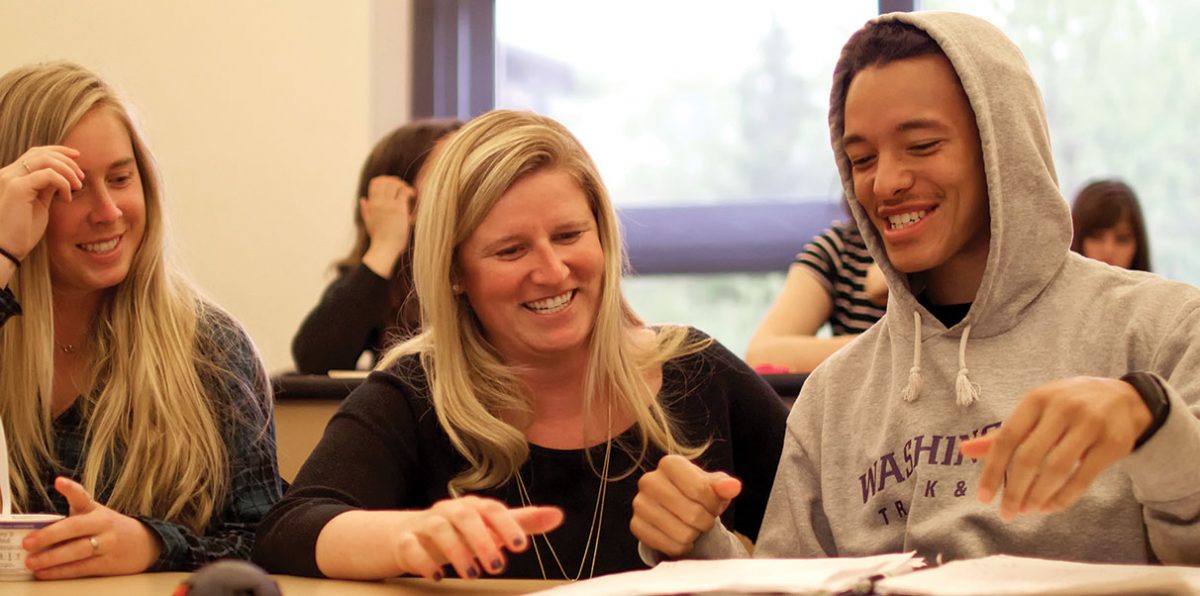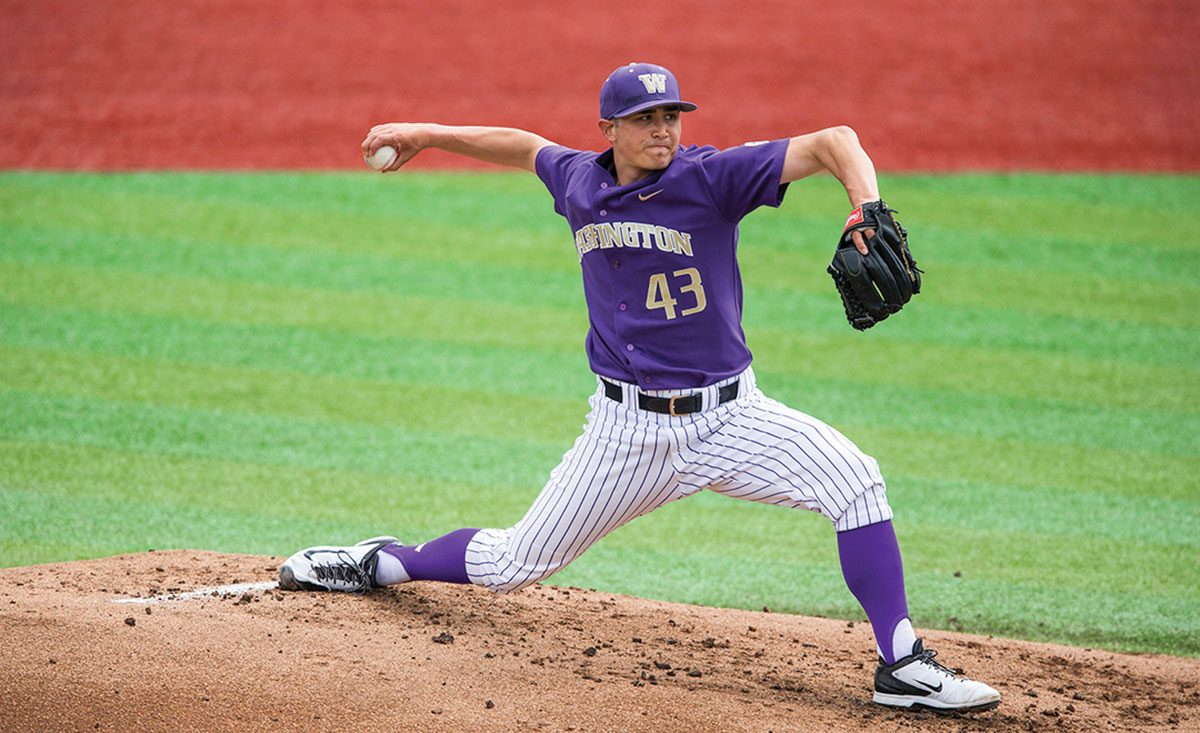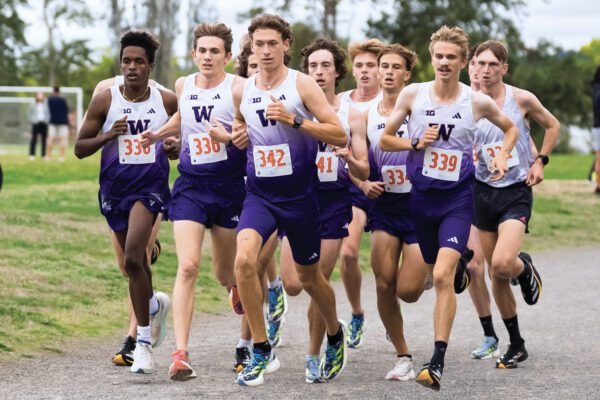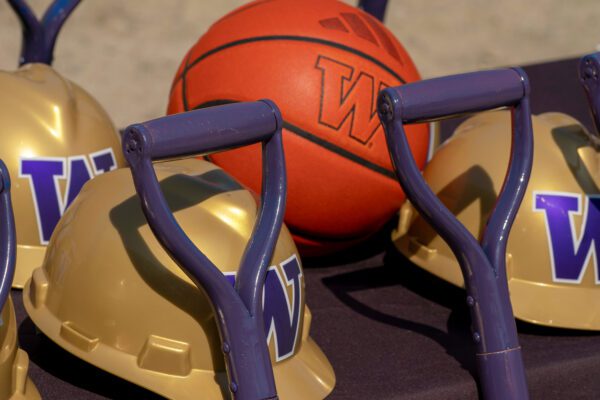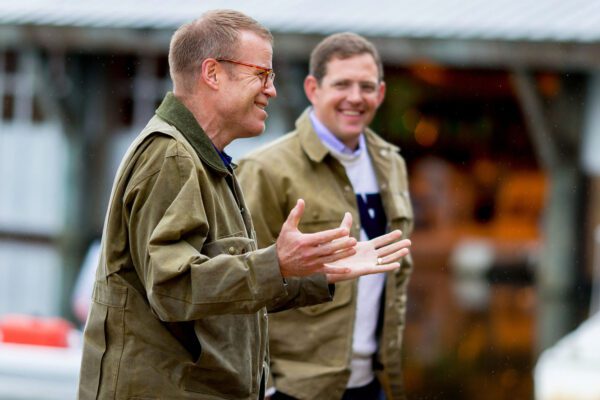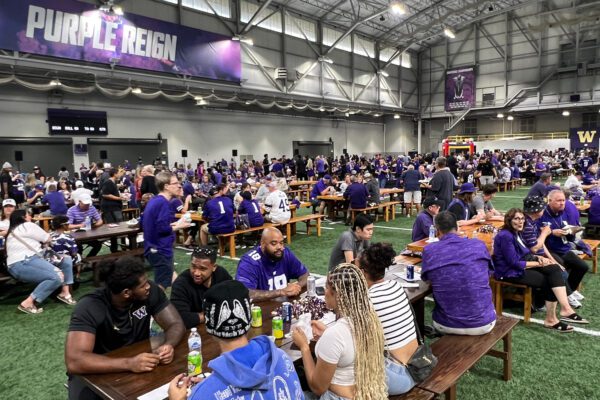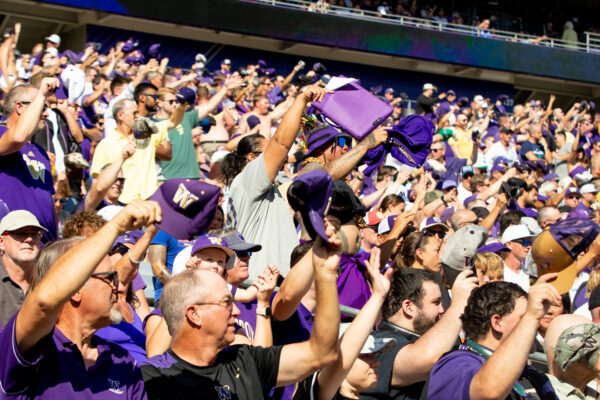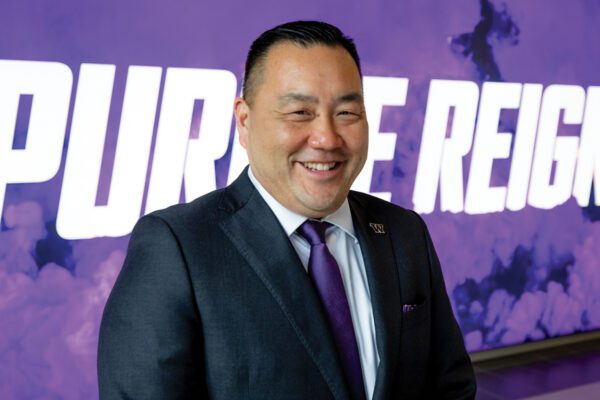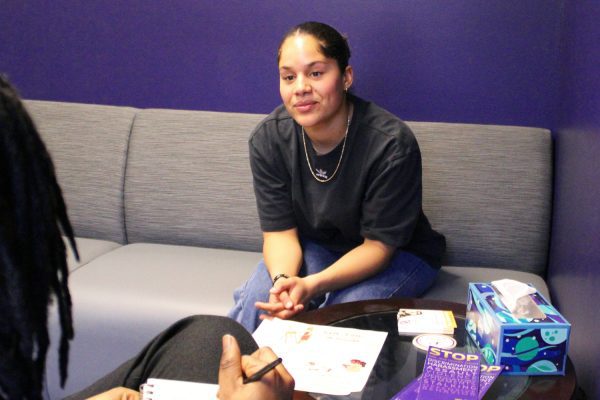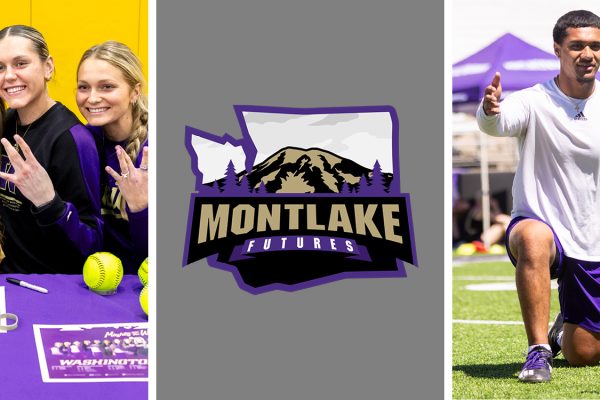UW Athletics’ sport psychology program — one of the first in the nation — boosts student-athletes’ mental wellbeing along with their performance
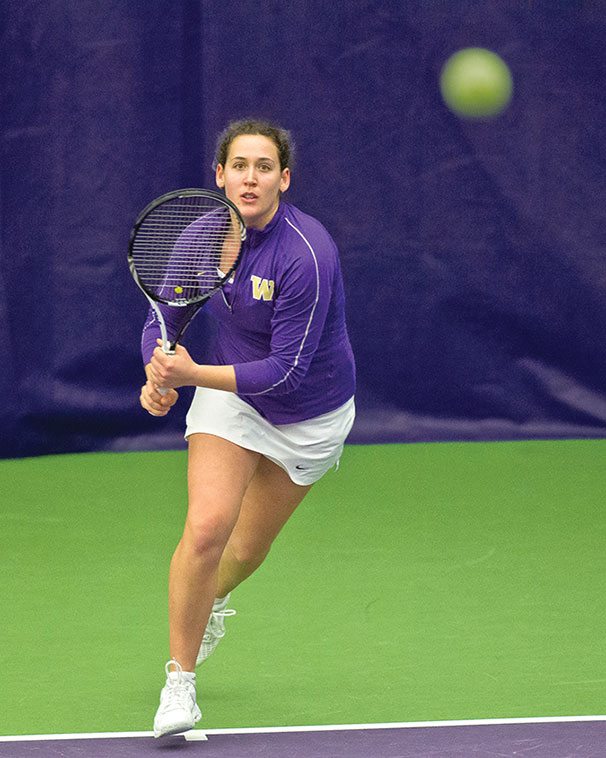 When tennis player Julija Lukac arrived at Washington from her native Serbia in 2011, she was brimming with confidence, filled with excitement about college life and armed with a truly wicked serve.
When tennis player Julija Lukac arrived at Washington from her native Serbia in 2011, she was brimming with confidence, filled with excitement about college life and armed with a truly wicked serve.
It didn’t take long for all three to falter.
Julija could carry on conversations in English, but studying tough subjects in a foreign language was terribly difficult. Cultural differences, along with being more than 5,000 miles away from mom and dad, also began to overwhelm her.
“It was really scary,” recalls the 2015 graduate, who majored in finance. “Seeing the sports psychologist played a crucial role in my survival at UW. I wound up having a very good experience academically and athletically, but without the resources that UW gave me, I don’t know if it would have been possible.”
The NCAA’s Chief Medical Officer recently proclaimed mental health as the top medical issue facing student-athletes. But it wasn’t always so. Five years ago, Husky Athletics blazed the trail as one of the first programs in the country to hire a full-time sports psychologist. Still, less than half of NCAA programs employ sports psychologists.
“At Washington, we fundamentally believe that when we recruit student-athletes we will do everything we can to help them grow personally, professionally, in their competition and to prepare them to become incredible humans. That includes emotional and mental health,” states Cassie Pasquariello, PhD., who leads the UW program. (ABOVE: Dr. Cassie Pasquariello works with student-athletes Nicole Harris and Kaid Tipton during a Sport Psychology and Leadership class.)
Sport psychology is a field with relatively few specialists like Cassie, who was a student-athlete before completing her degrees, internship and fellowship. She sees young men and women about typical problems like relationship woes, the sudden loss of a family member or difficulties adjusting to life away from home. But she also helps with issues unique to athletes — injuries, performance stress or struggles over no longer being the “big fish” they were in high school.
“If you’ve defined yourself as an athlete your whole life and you get here and you can’t play because you’re not good enough or you’re injured, it’s difficult to see yourself as something else,” she explains. “That culture is hard to explain to a mental health provider who doesn’t live it.”
The sport psychology program conducts team workshops on performance, excellence, team chemistry, leadership and communication and teaches classes on substance abuse, eating disorders and dating violence. Cassie also trains and supports peer advocates, who are chosen by their teammates as the peers they turn to for help.
The key to the program’s success, she says — whether student-athletes are facing serious crises, personal problems or performance issues — is the universal embrace of the program by executives, coaches, trainers, physicians and virtually everyone who comes into contact with student-athletes.
“This department is full of people who really care about them and their overall wellness,” Cassie says.
For Julija, and countless others, the care pays off — and not just while they’re in school.
“Staying mentally healthy is so important in whatever we face, no matter if it’s on the court or in school or in life,” Julija says. “I realize that more than ever now that I’m on my own.”
‘Just rub some dirt on it.’
Pitcher Josh Fredendall came to Washington as a junior in 2011 and was on tap for the Major League Baseball draft before his senior year. Then, he felt a pop in his elbow while warming up for a PAC-12 series game. Two surgeries and three years later, he graduated with a degree in political economy — dubbed “the old man” by teammates but still happy to have survived such a difficult time thanks to the help of sports psychologist Cassie Pasquariello.
“I’m not really good at talking about feelings. The social construct of a male athlete is ‘hold it in, just rub some dirt on it, there’s no crying in baseball’. But it felt good to make that leap and I’m so thankful I did.”
For two years Josh wasn’t able to practice or travel with the team.
“I kept thinking about what could have been. I’d been a baseball player since I was 4 and now the chances of pro ball were slim. You go down the rabbit hole when you have all this time and you’re doing rehab 2½ hours a day. I had so much anger and resentment.”
Finally, in his sixth year, he was healthy enough to play. But the feelings didn’t go away.
“Talking with Cassie, I didn’t know I could address my feelings as opposed to holding them in. I found it so easy to talk through really deep things and not be judged and find understanding, meaning, direction and drive. Before, I was walking aimlessly down a road trying to find the right path. I would definitely say the reason I was really able to enjoy my last year of baseball was addressing these issues with Cassie.”
Today, Josh is living in Seattle, rooming with former teammates, working as a financial planner and still attending UW baseball games — forever a Husky.

